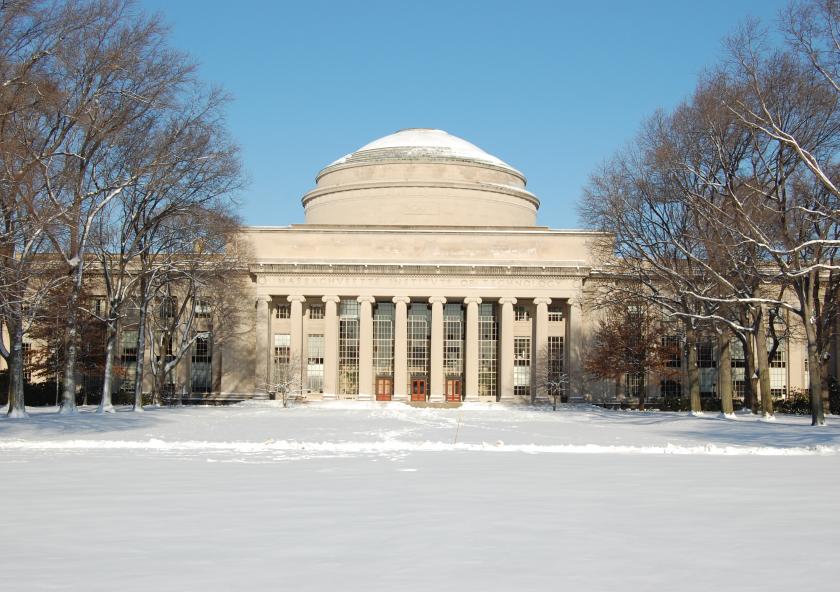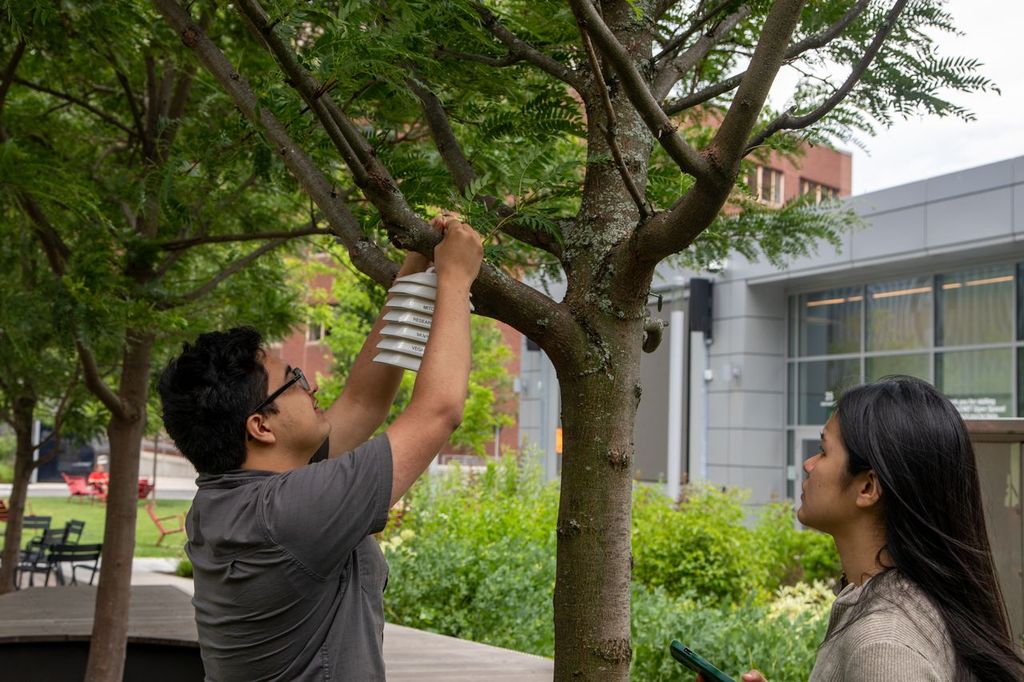
Kicking Off IAP Climate 2026

The MIT Office of Sustainability (MITOS) is teaming up with the PKG Center for Social Impact for the second annual IAP Climate Program. During January, MIT offices, departments, and government and community leaders will come together to tackle shared challenges related to climate change. An interdisciplinary cohort of ten undergraduate MIT students will work full-time with partner organizations for the four weeks of the Independent Activities Period (January 5–30, 2026).
In addition to developing the program with PKG, MITOS will host two of the students to work in collaboration with campus stakeholders to advance research on indoor cooling methods. They will support preparations for deploying temperature sensors and related outdoor heat monitoring for next summer.
This project uses MIT’s campus as a test bed by allowing students, researchers, and staff to evaluate real-world solutions for heat mitigation, data visualization, and communicating practical strategies for the region. By grounding research in campus conditions, students gain hands-on experience, while contributing directly to understanding the implications of a changing climate.
This work builds on previous summer and IAP projects, involving MIT as well as its partners at the City of Cambridge, in figuring out how to deploy a network of air temperature sensors in outdoor areas on the MIT campus and beyond. The sensors log temperature and humidity levels continuously throughout the day and night and are installed strategically in both shaded and unshaded areas. Students are helping to develop a prototype for a dashboard to visualize and interpret the heat data. Read more about additional IAP Climate 2026 projects and partners below.

Photo credit: Noah Phoenix, MIT Open Space Programming
Additional 2026 Partners:
- The City of Cambridge
- The Massachusetts Executive Office of Energy & Environmental Affairs (EEA)
- MIT Climate Project with GreenRoots
- MIT Urban Risk Lab with Eastie Farm and the Common Good Co-op
Related Projects:
- Enhancing an extreme heat guide created by last year’s IAP cohort, with a targeted emphasis on integrating effective communication practices for upcoming extreme heat events.
- Developing community-focused guides that translate climate resilience into actionable strategies, along with a toolkit that articulates a more accessible language of decarbonization.
- Planning for community resilience and urban greening, including mapping and enhancing local tree canopy.
- Conducting foundational planning aimed at strengthening the infrastructure of community farms.

